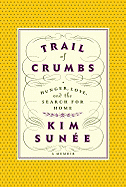

Food and its connection to survival and comfort form Sunée's earliest and most terrifying memory. At the age of three, her mother left her in a South Korean marketplace with a handful of food and the promise that she would return. Three days and nights later, the food reduced to crumbs, she was picked up by police and taken to an orphanage. Shortly after that, Sunée was adopted by an American couple and raised, along with her sister (also adopted from Korea), in New Orleans. It was a brutal start to life, and while her adoptive family loved and protected her, they were unable to fill the emptiness and uncertainty at her core.
At 22, while studying in Switzerland, Sunée was introduced to Olivier Baussan, the French founder of L'Occitane, who was almost 20 years her senior. Their passion for each other was instant and mutual and she was soon living with Baussan, cooking sumptuous feasts for his many friends and acting as stepmother for his young daughter, Laure. The still-married Baussan made sure Sunée never wanted for anything but also sought to control her completely. Although he took her to South Korea (a frustrating, futile trip), Baussan had neither the capacity nor inclination to understand her inner fears or search for herself. Eventually she left the relationship, although the two remained in touch with each other for years afterward.
The recipes that Sunée includes in her memoir have little connection to the chapters preceding them and often seem a thematic afterthought. And while her writing is sensual and deeply passionate, it does not quite manage to blend flavors and food together with a sense of place and memory. Sunée does have a poet's eye for detail and a gift for coloring to the ineffable sense of loss and hunger that drove her through another love affair with another married Frenchman, through North Africa and finally back to the U.S., where she began the process of reconnecting with her family and the country where she was raised. Despite its lack of cohesion, this is a haunting and beautifully written memoir.--Debra Ginsberg

